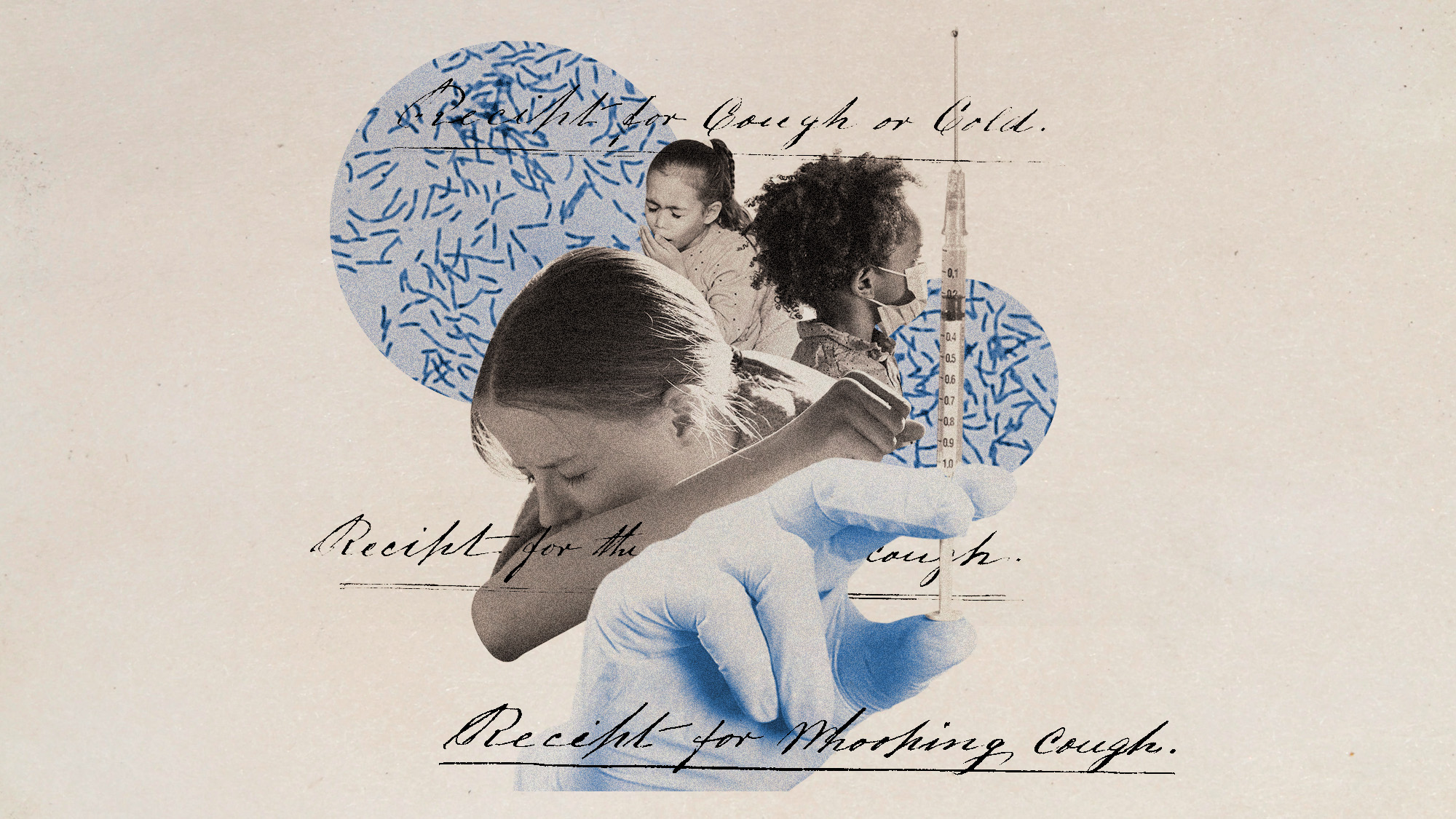The sneaking rise of whooping cough
The measles outbreak isn't the only one to worry about


A free daily email with the biggest news stories of the day – and the best features from TheWeek.com
You are now subscribed
Your newsletter sign-up was successful
A measles outbreak has been keeping American health care professionals on their toes, but experts say we should also be wary of another preventable disease: whooping cough. This illness typically presents with a recognizable, harsh cough, and it can be especially dangerous for infants. With the prevalence of vaccines on the decline, experts say the whooping cough outbreak will likely worsen.
Putting our youngest at risk
After a dip in diagnoses in recent years, cases of pertussis, commonly known as whooping cough, have seen a national spike. Two babies in Louisiana died of pertussis in the past six months, said CNN, and Washington state confirmed its first death from the disease in over a decade in February. Idaho and South Dakota have also each reported a death this year, and Oregon reported two last year, as well as its highest number of cases since 1950. While much of the country is "focused on the spiraling measles outbreak concentrated in the small, dusty towns of West Texas," whooping cough cases have "skyrocketed by more than 1,500% nationwide since hitting a recent low in 2021" amid the Covid-19 pandemic, said ProPublica. Deaths tied to the disease are also on the rise, "hitting 10 last year, compared with about two to four in previous years."
Experts say it is typical to see "peaks and valleys with these kinds of illnesses over the years," but there have been "about 6,600 cases already in 2025," CNN said. When you start seeing more of these outbreaks, it tends to be a "result of that increased circulation of the microbe in the community," as well as "populations with no immunity or reduced immunity that are susceptible to the infection," said Lisa Morici, a professor of microbiology and immunology, to CNN.
The Week
Escape your echo chamber. Get the facts behind the news, plus analysis from multiple perspectives.

Sign up for The Week's Free Newsletters
From our morning news briefing to a weekly Good News Newsletter, get the best of The Week delivered directly to your inbox.
From our morning news briefing to a weekly Good News Newsletter, get the best of The Week delivered directly to your inbox.
Pertussis spreads through "coughing and sneezing and sharing close breathing space," pediatrician Alyssa Kuban said to the American Medical Association, noting that "the risk of spread is highest for the first one to two weeks that a person has symptoms." Without treatment, people can be contagious for several weeks. The highest-risk groups are young children and infants, with the youngest at "highest risk for severe disease and complications," she added.
A 'bright-red warning light'
With vaccine hesitancy on the rise, doctors, researchers and public health experts warn that the measles outbreak "may just be the beginning," said ProPublica. Epidemics of preventable diseases like measles and whooping cough could "get much worse with falling vaccination rates" and the Trump administration "slashing spending on the country's public health infrastructure." National rates for four major vaccines have fallen significantly since the Covid-19 pandemic, according to a ProPublica analysis of the most recent federal kindergarten vaccination data. Not only have vaccination rates for measles, mumps and rubella fallen, but according to federal data, "so have those for pertussis, diphtheria, tetanus, hepatitis B and polio."
Many medical professionals view measles, "which is especially contagious, as the canary in the coal mine" — and pertussis cases may also "be a warning, albeit one that has attracted far less attention," said ProPublica. "This is not just measles," Adam Ratner, a pediatric infectious diseases doctor, said to the outlet. "It is a "bright-red warning light." The large outbreaks of "vaccine-preventable diseases" like measles and whooping cough are "going to end up causing a lot of harm, and possibly deaths in children and young adults," said Anna Durbin, a public health professor. "And it's completely preventable."
Vaccination "must start in pregnancy," Kuban said to the AMA. When you get the Tdap vaccine for tetanus, diphtheria and pertussis, your antibodies "cross the placenta and give the baby immunity for the first couple months of life." This early vaccine has been "remarkably effective," preventing "78% of pertussis cases in infants under 2 months old" and "90% of hospitalization rates in infants younger than 2 months old who end up getting pertussis," she added. "So, protecting infants actually starts before the baby is born."
A free daily email with the biggest news stories of the day – and the best features from TheWeek.com
Theara Coleman has worked as a staff writer at The Week since September 2022. She frequently writes about technology, education, literature and general news. She was previously a contributing writer and assistant editor at Honeysuckle Magazine, where she covered racial politics and cannabis industry news.
